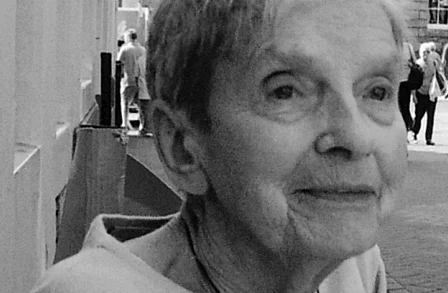An Experiment in Poetry: Margaret Avison Invites Us to Wonder
/An Experiment in Poetry is a weekly series here at MoralApologetics.com spotlighting poets whose work points to transcendent values and encourages us to contemplate questions at the heart of the human condition.
Canadian poet Margaret Avison (1918-2007) never sought out fame. Despite winning numerous awards honoring her work, she eschewed the limelight, even joking in an interview that she wished publicity could be “deferred until after people are dead.” Self-effacing, Avison even felt sheepish about winning the Guggenheim Fellowship in 1956 because so many others did not. These anecdotes mark Avison as a rare figure in publishing, clearly well accomplished yet remarkably humble. In fact, Avison’s full-time profession was never poetry; she spent time instead as a librarian, social worker, and teacher, writing in her spare time yet still managing to publish six collections of poems.
Early in her career, Avison converted to Christianity, an event that profoundly affected her writing. She was reluctant to convert, thinking that doing so meant she would need to relinquish what she perceived as a worldly pursuit. In a review of Avison’s (incomplete and posthumously published) autobiography, I Am Here and Not Not-There (2009), Joanne Epp explains that the poet made a two-step surrender to Christ—first, acknowledging her belief in the gospel commingled with an unwillingness to give up her poetry; and ultimately, one might even say angrily, “throwing her Bible across the room with the exclamation, ‘Okay, take the poetry too!’”
Only through that difficult surrender did Avison realize the freedom available in Christ, to imaginatively explore creation and to fully express her emotional reactions to that experience. As Epp explains, what Avison discovered was “that her subject matter was enlarged, not constrained, by her coming to faith. ‘If God is anywhere, if He is present,’ she told an interviewer, ‘you can study anything.’”
We can be grateful Avison gained that insight. Her poetry regularly offers readers a glimpse of the divine at work in this everyday world. In “Prelude,” a simple reflection on her grandfatherly neighbor takes on outsized proportions, gesturing toward desire and loss:
Light, the discovering light, is a beginning
where many stillnesses
yearn, those we had long thought long dead
or our mere selves.
And one needn’t be a believer to recognize this transcendent vision. Poetry Foundation describes Avison’s work as “introspective, observant, and deeply spiritual.” The Kirkus Review says her 1966 collection The Dumbfounding[1] evokes a “sense of religious awe” and wonder about life itself; they note that she brings a “transforming joyousness” to colloquial phrases and everyday realities. As in “Perspective,” where she turns a train ride into a meditation on mindfulness:
But ho you miss the impact of that fierce
Raw boulder five miles off? You are not pierced
By that great spear of grass on the horizon?
You are not smitten with the shock
Of that great thundering sky?
It is for these poetic sensibilities that Epp calls her “a woman with a lively curiosity and a real love for the world.” And in the extraordinary lines of her poetry, Avison encourages in her readers that same curiosity and love. For example, Linda Bierds highlights Avison’s control of movement in her personal and deeply meditative “New Year’s Poem,” taking the reader along the path of the key figure’s gaze, looking down at a pearl loosed from its necklace and from there to beyond the apartment window and, even, to the stars above.
This spatial movement is a catalyst to memory, linking the present moment to the past that wrought it. It’s an expansive poem while simultaneously still—the speaker remains closely tied to the woman at the window, reminding readers of the power of human consciousness and imagination. The final stanza illustrates Avison’s ability to select and place words just so, in order to link a specific and unique moment to an all-embracing reality.
Gentle and just pleasure
It is, being human, to have won from space
This unchill, habitable interior
Which mirrors quietly the light
Of the snow, and the new year.
In a way, this poem is a microcosm of Avison’s body of work, which attends to the mundane and finds unexpected beauty there. It’s a poem of hope and a measure of its value. God bless Margaret Avison for giving such exquisite voice to this truth.
Links for This Week’s Featured Poems
“Prelude” by Margaret Avison
“New Year’s Poem” by Margaret Avison
“Perspective” by Margaret Avison
“The Party” by Margaret Avison
“Stray Dog, near Ecully” by Margaret Avison
[1] Avison’s first collection after her conversion










